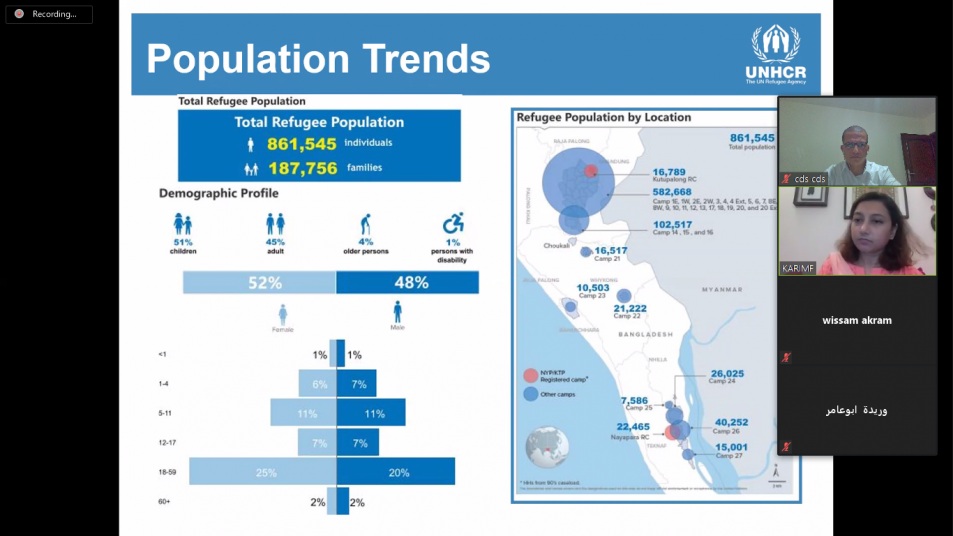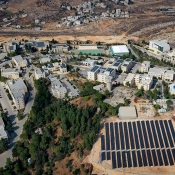Rohingya refugee crisis explained to international migration master’s students
Birzeit University students enrolled in the master’s program in International Migration and Refugee Studies offered by the Ibrahim Abu Lughod Institute for International Studies were introduced to the Rohingya refugee crisis in Bangladesh. Fahimda Karim, an associate protection officer at the United Nations Refugee Agency UNHCR, told the students about the history and current condition of the crisis, the legal status of the refugees, and role of UNHCR in protecting them.
Karim pointed out that the Rohingya belong to a stateless Muslim minority from Myanmar who sought refuge in Bangladesh. Because the latter has not yet acceded to the 1951 refugee convention, the Rohingya lack a legal framework that would protect their rights.
Tackling their history, Karim recounted that more than 860,000 Rohingya sought refuge in Bangladesh 1978, and another 250,000 fled in the early 1990s, having faced continuous, systematic discrimination and targeted violence in Myanmar (formerly Burma). But in both incidents, they were repatriated after negotiations. The 1982 Burmese Citizenship Law left the Rohingya, who have sought to establish an independent state since the 1950s, stateless. The current crisis began in 2015 and escalated in 2017, with the Myanmar government accused of engaging in genocide.
Karim concluded her lecture by explaining the UN’s role in helping refugees by integrating them into their new communities or taking them back to their country. She cautioned, however, that the UN’s ability to effectively protect Rohingya refugees’ rights is weak.







